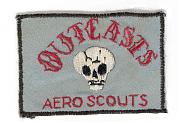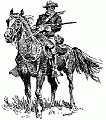Quite so. The trick is knowing when to flow from one to the other, or how to synchronize them so that both activities take place at the same time, although in different locations. And if you don't train properly, and in both areas, you'll only learn this (if it's learned at all) through very expensive trial and error. Since setting up constabularies or gendarmes doesn't seem to be an option these days, regular troops need to be prepared for those roles...at least until the host nation can take over. Otherwise you end up training a force for another Korea when that might not be the proper response at all...
Breaking out of "either/or" is essential.








Bookmarks